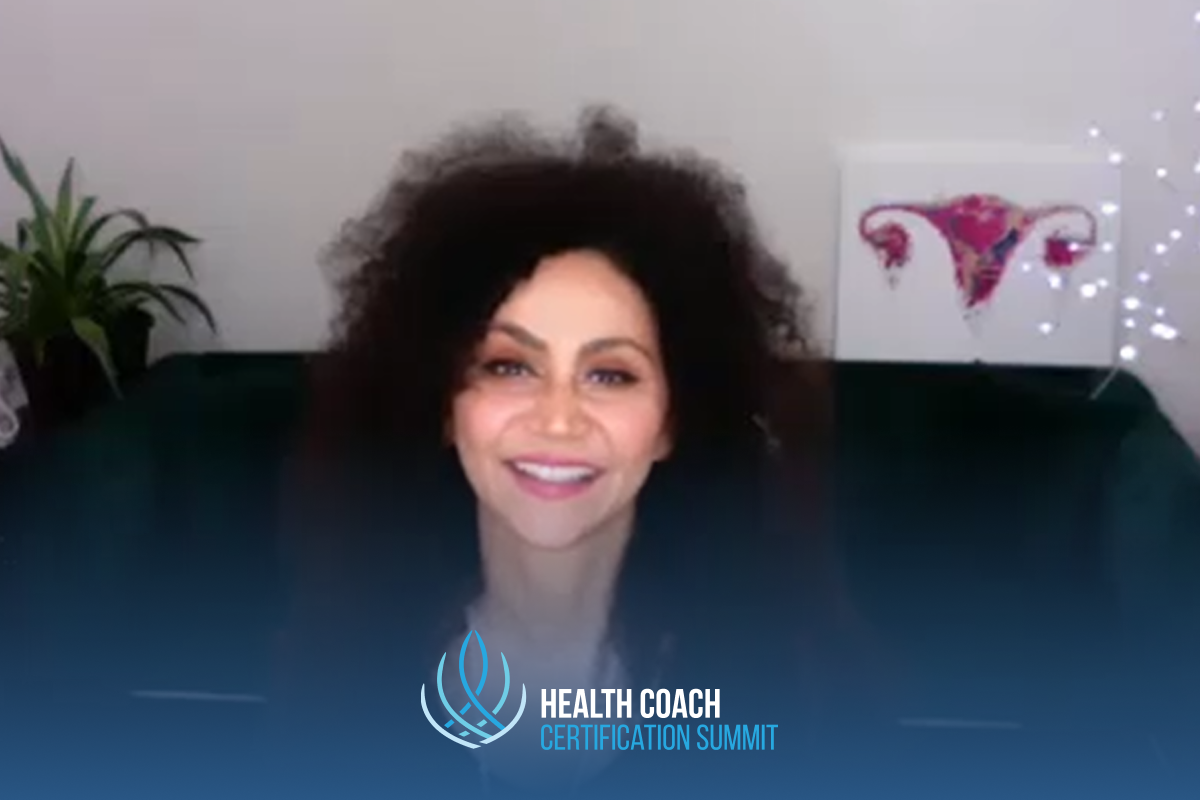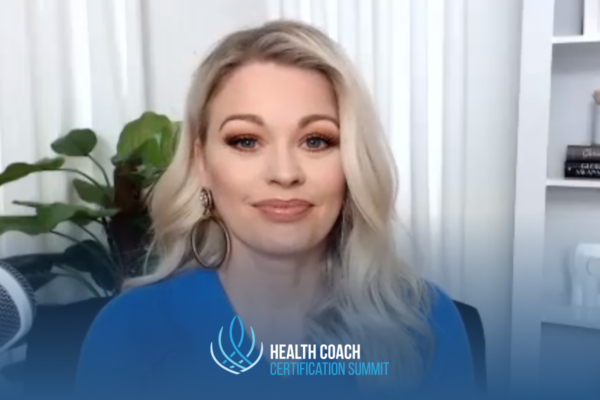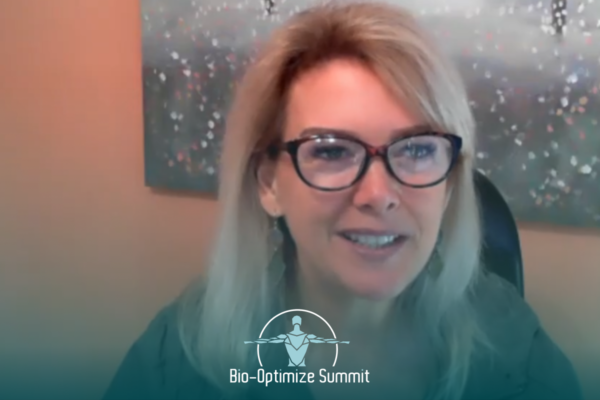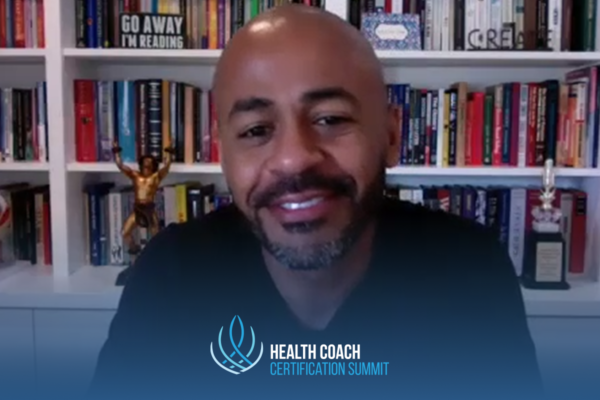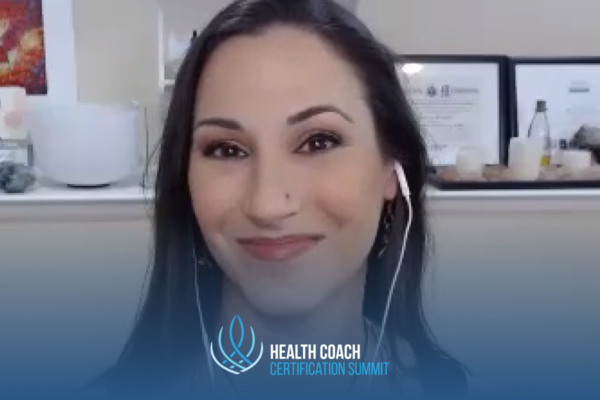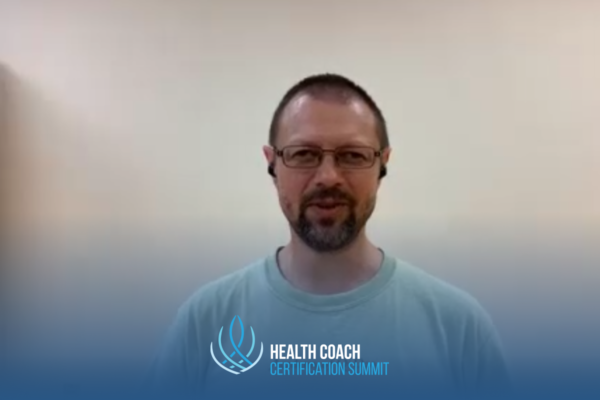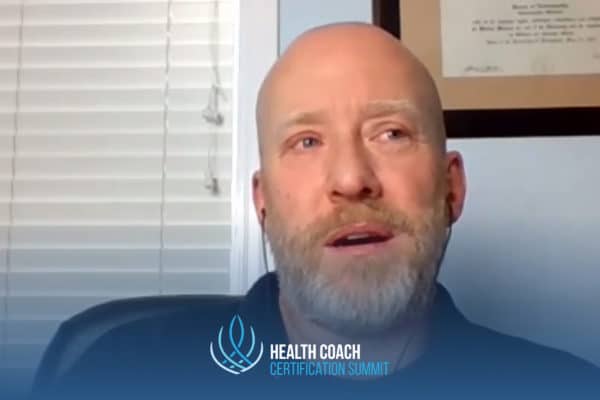Join the discussion below
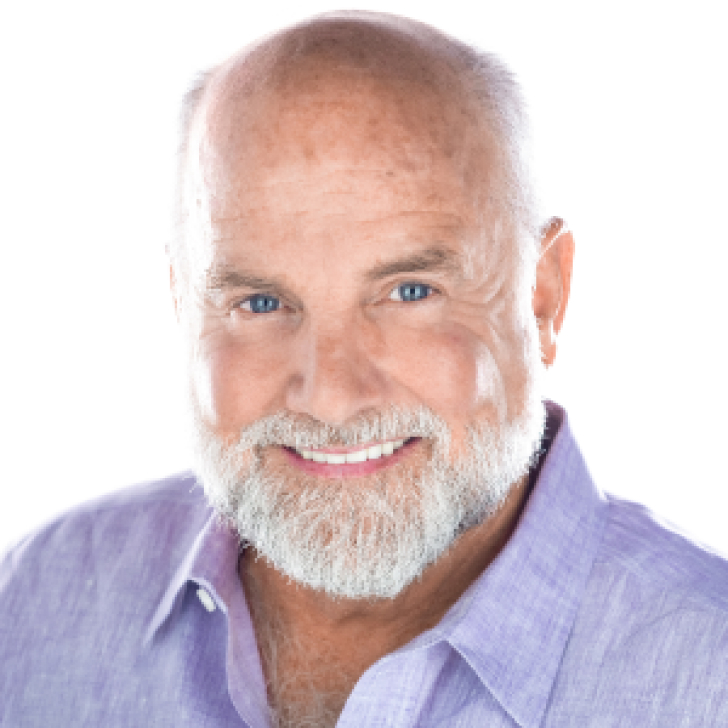
Reed Davis, Triple-Board Certified Holistic Health Practitioner (HHP) and Certified Nutritional Therapist (CNT), is an expert in functional lab testing and holistic lifestyle medicine. He is the Founder of Functional Diagnostic Nutrition® (FDN) and the FDN Certification Course with over 3000 graduates in 50 countries. Reed served as the Health... Read More

Dr. Cleopatra is The Fertility Strategist and Executive Director of The Fertility & Pregnancy Institute. She is a scientist and university professor who pioneered the field of fertility biohacking and creating superbabies. To date, Dr. Cleopatra has scientifically studied tens of thousands of women and families and has helped women... Read More
Coming Soon
Reed Davis, HHP, FDN-P, CMTA, CNT
Welcome back once again folks, you’re going to get introduced to another good friend of ours, who we’ve been working with for a while and who we respect and appreciate. She has an amazing background. Can’t wait for you to meet Cleopatra Abdou-Kamperveenmean. She’s a psychologist, author and professor she’s best known for her work on reproductive health. As you know, as health coaches, we have to deal with this infertility thing all the time. She’s also a very well known for her work in human flourishing, longevity, these kinds of things. Cleopatra Abdou-Kamperveen, PhDis an assistant professor in the Leonard Davis School of Gerontology and department of psychology at the University of Southern California. Funny, I just interviewed another Trojan alumni but I accidentally said UCLA, I don’t think she was very happy.
Cleopatra Abdou-Kamperveen, PhD
I knew that was coming!
Reed Davis, HHP, FDN-P, CMTA, CNT
So anyway, your mission is to magnify the loving goodness in the world by using science and wisdom to help institutions, healthcare providers, and organizations support women through the stages of the mommy life cycle. ‘Cause obviously fertility, pregnancy, balancing motherhood with professional roles and aspirations. So I think this is an amazing topic and welcome Dr. Cleopatra Kamperveen Kamperveen. It’s so good to see you and to have you here. Say hello and tell us a little bit more about your background, how you got to all that.
Cleopatra Abdou-Kamperveen, PhD
I’d love to. Thank you Reed for having me. I’m excited to be here with you. I just want to say that I did my PhD at UCLA and I’m a professor at USC, so I love both institutions and I actually am now tenured. So I’m an associate professor and I have been doing this work in fertility and pregnancy and the intergenerational health formally for 24 years, which is more than half of my life. People often ask me, “Why did you get into this area? Did you struggle with fertility challenges?” And as you know, because we know each other personally and professionally, I have three babies. My babies were all born in the month of March so I planned exactly when they would be born.
Fertility has been one of the easiest things in my life, I’m really grateful to say, but I lost my mother at birth. Having that beginning to life left such an impression on me of how critical healthy reproduction is and how when reproduction goes well, we set up future generations and when it doesn’t go well, we set off this domino effect of hardship for future generations that we then have to very consciously and intentionally intercept to change the course of that family. I highly highly believe in what we call the primester, the time before pregnancy, as one of the greatest sources of activism that we have available to us on the planet. Because when we take advantage of this period of time, we literally have the power to shape the quality and expression of the genes that we’ll pass down to our babies and our grand babies through epigenetics and contribute positively to the state and the soul of the planet. We know it contributes to our fertility. It contributes to our own family, but it also contributes to the state and soul of our planet.
Reed Davis, HHP, FDN-P, CMTA, CNT
That’s remarkable. So I bet people do ask you a lot about how you got into it and you’d think maybe you had your own problems, but with your mom dying in childbirth, that doesn’t happen a lot today. I mean, maybe it was 30 years ago or something, but you think about it being real old time. Like my great grandfather’s wife died in childbirth, but it was her ninth kid. Back then it was pretty common but not much anymore. So I could see the total motivation there. What do you mean by epigenetics for kids? How does epigenetics apply to what you do?
Cleopatra Abdou-Kamperveen, PhD
Absolutely. So epigenetics is the process whereby our internal and external environment can shape the expression of our genes, can either activate our genes or suppress the expression of our genes. So if you think about your genome and the epigenome—which epigenetics literally means upon or above the genetics—you can think about it as sort of a dimmer on a light switch. We can use the process of epigenetics to either turn up those genes or turned down those genes. So what we want to do in the primester, and really at every stage of the mommy life cycle, as we call it and of the life cycle is to turn up the expression of the genes that are working well for us. Then turn down the expression of the genes that are putting us at risk. What most people don’t realize is that fertility is an epigenetic process. Our fertility is not fixed. It is not the case that just because you’re having fertility challenges at one point that you always have to be having fertility challenges. We can really intercept those processes through epigenetics and help to reverse reproductive aging, slow reproductive aging, and overcome conditions of sub fertility.
Reed Davis, HHP, FDN-P, CMTA, CNT
I’ve actually experienced it but I didn’t realize it was an epigenetic expression. ‘Cause I guess over the years, we’ve had people who are working a health-based program. We have this grounding program where we get people healthier. I once had a lady, she called me up one day, my phone rings, and she goes, “Hey, it’s Chuck and I”—her husband—she goes, “We just left the doctor’s office and we’re pregnant.” And I go, “Well, congratulations.” It’s a bit of an odd call. She goes, “No, no, it’s your fault.” Like she goes, “We gave up nine years ago trying to get pregnant.” So it wasn’t even her list of complaints or dreams or wishes. They had just figured, “Well, we’re not meant to have kids”, but they’d been going through this whole thing for about 5 or 6 months and boom. All of a sudden it turned on, whatever. I guess what you just taught me is that it was the genes that turned on as much as anything else we thought we were doing. So is that what you meant by that? Kind of?
Cleopatra Abdou-Kamperveen, PhD
Absolutely. The way that you up-regulate the genome is by putting into practice these health giving habits and practices. So things like the way that we’re eating, the way that we’re sleeping, the way that we’re moving, the way that we’re interacting with other people and other beings, including pets, the way that we are interacting with nature around us, the way that we’re interacting with a 24-hour cycle in the day, the way that we’re interacting with the seasons, all of these forces outside of us, these external forces, are affecting the expression of our genes. Then internally our stress response is having a huge impact balance. For instance, the balance of sex to stress hormones is really critical in epigenetics and also in fertility, epigenetics and primester epigenetics, more specifically. So what you were teaching this couple was affecting their epigenome and ignited their fertility, allowed them to overcome conditions of subfertility. What’s so interesting is that we hear all of these statistics about 1 in 8 couples get diagnosed with infertility, 16% of married couples get some form of fertility treatment, according to the latest estimates from the CDC.
But what we don’t talk about is what’s known in science as involuntary childlessness. We believe that this metric much more closely approximates human—the rate of true infertility and true sterility in the human population. So this number is approximately 3%. So for the vast majority of the population, if they’re experiencing difficulty getting pregnant or staying pregnant, they are probably experiencing conditions of subfertility. But the chances that they are truly infertile or sterile are very, very small. So one of the first things that we can do when we’re helping a woman, when we’re helping a couple, is to teach them about human biology and the fact that the odds that they are truly infertile are so small. So if they’ve been diagnosed as “infertile”, to understand that diagnoses are a necessary evil of the healthcare system, because we need a diagnosis in order to mobilize resources, to mobilize treatment, but they don’t need to internalize that label or that diagnosis as being defining of who they are.
Reed Davis, HHP, FDN-P, CMTA, CNT
You know, that’s remarkable, you’re putting it that way. It just fits so in with our way of looking at people’s problems as being a holistic problem. There’s a lifestyle problem. There’s a genetic problem, but it’s really epigenetics that matters. You can’t ever change your genes, but you can sure control in a way the expression of them is that example I gave. So when people get a diagnosis from a physician, usually it’s—what you said was they have to give a diagnosis, there’s a code and that will initiate the resources, meaning payments by insurance companies sometime.
And then also that dictates the standard of care or the CPT procedure code. “She came in, I diagnosed her with this and I wrote her a prescription for this.” It seems like—I may be behind the times a bit, in my own world, but the solution back then when I was helping and seeing clients more often, it was just fertility drugs. That’s the answer. So what you’re telling me is that just like thyroid or these other issues, irritable bowel, or things. It’s just being treated like that. It’s just—here’s the diagnosis and here’s the treatment standard of care without much consideration for what’s way upstream. What has maybe turned down that genetic expression? Is that kind of what—you’re in alignment with that?
Cleopatra Abdou-Kamperveen, PhD
Absolutely Reed and just like you do we think of fertility not just as having to do with one part of the body or one part of someone’s health. So we don’t locate fertility in the ovaries or the eggs or the uterus exclusively, we think of fertility as a system and the way that we conceptualize this system is what we call the fertility triangle. The fertility triangle has five levels. The base is the psychosexual level, so having to do with psychology, sexuality, sensuality. The second level is what we call bio ecological. So that has to do with the physiology, but also the ecological context. The third level is neuro immunological, which has to do with the brain and the immune system. The fourth and fifth levels are what we call social and cultural.
So what you can see by looking at the fertility triangle is that we understand the biological clock and fertility as having to do with every part of a person’s health and every part of a person’s life, current, past, future. It’s really important to consider all of these things in the process of creating that positive epigenetic change that helps to ignite people’s fertility, extend their fertility for as long as possible for our high achieving women who are focused on education and career and know they’re going to wait until later on in life to have children like I did. So it’s really important for us to remember that fertility is not just in one part of the body and not just in one part of the life. The critical thing about the fertility triangle is that you can’t outsource it.
You cannot relinquish it to somebody else to take care of for you or to treat for you. It is your work to do just like you can’t have somebody eat well for you. You can’t have somebody exercise for you. You can have someone teach you how to do those things, which is what we do. We teach you how to work at every level of the fertility triangle to create that epigenetic change that ignites your fertility and allows you to have your super baby. What I mean by super baby is something really specific. So when—it was actually my clients who came up with the term super baby. You help us to have super babies. You have super babies. At first I was a little resistant to using that term because I was concerned that it has embedded in it, a sort of social comparison. Like one baby is better than another baby, but I came to use it as “your super baby”.
If you get to have your super baby, or when you get to have your super baby, it means that you get to have the healthiest, happiest, brightest, most well adjusted, baby you can possibly have given your genome and your epigenome and the genome and epigenome of the person who’s contributing the other half of your baby’s DNA. So you cannot outsource your fertility triangle, it’s your work to do. It doesn’t matter how much money you have to invest in the problem or throw at the problem. Even if you’re going to be doing IVF, it’s important to understand that the scientific literature is very clear that there are individual level modifiable factors that can increase the likelihood that IVF is successful and also decrease the likelihood that IVF will be successful. So your fertility doctor, your IVF doctor, cannot control those things for you. You have to do the work in the primester before going into IVF to ensure that you give yourself the greatest odds of success in IVF. IVF can circumvent the problems, but only you can address the root cause of the problems.
Reed Davis, HHP, FDN-P, CMTA, CNT
Yeah, I mean, it makes a lot of sense, ’cause part of a health coach’s job is to get people to take a look—it’s your responsibility. I’m just your coach. I can’t do it for you. Kind of like in football, we give the guys stuff to do. We teach them, kind of hound them sometimes, but only they can go out there on Saturday and play the game. You’re not on the field with them. So you gotta prepare them for all that stuff. That’s amazing. I don’t mind the term super baby at all. I think that you just mean—like there’s these books out now about being superhuman. They don’t mean you’re better than anyone else. They just mean that you’ve got your stuff together and you’re gonna be the best human that you could be. Everyone has genetic potential and we want you to reach it. So, I want to go a little bit more into the fertility triangle. You mentioned five things. So how is it a triangle then? I know that four and five were the social and cultural aspects. Then what would be the other points again?
Cleopatra Abdou-Kamperveen, PhD
If you think of—since we don’t have an image in front of us—if you are familiar with the image of Maslow’s hierarchy of needs—
Reed Davis, HHP, FDN-P, CMTA, CNT
Yeah.
Cleopatra Abdou-Kamperveen, PhD
It’s a triangle and then within the triangle, there are levels. So we do the fertility triangle. We look at the fertility triangle in the same way, and there’s a very good reason why the psychosexual level is at the base of the fertility triangle, because that is where so much of the magic happens. So here we’re really looking at psychological hygiene and habits. We’re looking at the feedback loops between our psychology and our fertility that are orchestrated by the balance of sex hormones and stress hormones. We’re looking at one of our most fundamental mantras in the primester protocol, which is this, as many moments of every day as humanly possible for you step out of stress, step out of emergency, step out of trauma, and into peace and pleasure. I know that peace and pleasure sound really nice, but they sound optional.
They don’t sound important, but I always say treat pleasure as if your fertility depends on it because it does because the reality is that the same parts of the brain that are involved in keeping us safe are also involved in reproduction. So if there’s anywhere in yourself or in your life where your brain does not perceive you to be safe, your brain will automatically get the memo that it’s not the right time to prioritize reproduction because you haven’t yet ensured your safety. So reproduction goes on the back burner. It’s harder to get pregnant. It’s harder to stay pregnant when the central nervous system and specifically the sympathetic nervous system is activated. So this is why that’s at the base of the fertility triangle.
Reed Davis, HHP, FDN-P, CMTA, CNT
I get it now. So, I just—what I picture is a pyramid. ‘Cause triangle is three points that might all relate to each other, but what you mean is there’s a hierarchy of—yeah, like a pyramid. Like the food pyramid—even though the US one, we all know, is wrong.
Cleopatra Abdou-Kamperveen, PhD
Yes, exactly.
Reed Davis, HHP, FDN-P, CMTA, CNT
Yeah, a pyramid. Okay. That makes a lot of sense. What’s at the very top of it again? What was the top level thing?
Cleopatra Abdou-Kamperveen, PhD
At the very top of the fertility triangle, the fifth level is what we call cultural. So let me give you a few examples of what this means.
Reed Davis, HHP, FDN-P, CMTA, CNT
Okay.
Cleopatra Abdou-Kamperveen, PhD
So number one, one of the things we’re looking at in the cultural level of the fertility triangle is aspects of your identity. So maybe your race, your ethnicity, your national origin, and how aspects of your identity affect your experience of life and your experience of your own health. There’s a vast body of scientific literature that shows that being a woman of color is associated with accelerated reproductive aging, what’s known as weathering. We believe that that has to do with repeated exposure to stress and particularly status-based stressors, for example, experiences of discrimination and racism that are really wearing out the body and showing up in the reproductive system as one of the first places that it shows up.
So this is one example of the kind of thing that we’re working on at the cultural level of the fertility triangle. But even if you are not a woman of color, or a person of color, this level of the fertility triangle is still really important to you. Because another thing that we’re looking at here is the intergenerational transmission of stress and of trauma. So if you think about it, we all have very strong beliefs about the value of pregnancy, of motherhood, of parenthood. When we stop and assess where we develop those beliefs, where we absorb those beliefs, they almost always are transmitted to us through other people, including our parents, our grandparents, our siblings, maybe our close friends, also our professional circle teaches us a lot about what we should believe about the risks and benefits of getting pregnant, of entering into motherhood.
Am I gonna lose my competitive edge? What’s going to happen to me at work? So one of the things that we do at this level of the fertility triangle is really an excavation of the beliefs that we have internalized about our fertility, about the value of fertility, about pregnancy and about motherhood and parenthood more generally. So, did you see your mother struggle with getting pregnant? Did you see your mother have miscarriages? Or did your mother just think about getting pregnant and got pregnant? And then maybe you heard your mother talk about how hard it is to have children and how she had to sacrifice so much of what she wanted out of life once she became a mom. Then you’re automatically wondering why—just the thought of becoming a mom as much as you really want to have a baby is also really terrifying for you.
Reed Davis, HHP, FDN-P, CMTA, CNT
You know, I’m getting it. I’m just learning so much from you right now, Cleopatra. I’m so excited about it. Thank you. I know everyone else is too. Yes. It’s fascinating. Especially in today’s culture. Culture is one of the biggest issues of the day, this idea that you’ve already been there and done that and applied it to like a section of the health space. You’re way ahead of everybody. But when you said triangle and then you said 1, 2, 3, 4, 5, I went from top to bottom, but the one is at the bottom and two is at the top? So you just went over the top one and I can relate to it because my son, he’s 38 and he’s an amazing guy, very successful. He has a wife, he’s been married for 6, 7 years. What’s the first question everyone asks me? Do you have any grandkids? Do you have any grandkids? And I’m like, “Well…” I kind of hang my head, “No, not yet.” Like, why? Because culturally, man, they’re into their lifestyle. They’re jetting around. Like this weekend, they’re up in Yellowstone park having a ball, doing whatever they’re doing up there. And my sons, we’re very active together, but I could see it’s a cultural influence. That’s just, “Hey, we’re in our mid thirties. We’ve got time. Why rush? We’re having too much fun right now.” So that’s really interesting. You got that at the top. Go back down to the bottom. What is number one again? That was this like sensual…
Cleopatra Abdou-Kamperveen, PhD
Psychosexual level. Reed, I want to respond to something that you said about the question that you always get. Are you a grandfather yet? And how culturally your son and his wife have decided to really enjoy their life before they step into building their family. I think that this is really, really important because we get opposing messages from the dominant culture these days. On the one hand, there’s always the question. When are you going to get married? Once you’re married, when are you going to have kids? So we get really family oriented messages from the dominant culture, but at the same time, we get the message that you need to focus on your career first, you need to achieve a certain degree of financial stability.
You should enjoy your life and enjoy your freedom. So we get these really opposing messages and it’s really confusing. I teach about something called blind fertility syndrome. I think it’s really important for people to know about this. It’s that idea that we are so socialized to believe that whenever we’re ready for our fertility, especially as women, but even as men too, because men experience a decline in fertility over time as well, that once we’re ready for our fertility, we just blindly expect that it will be there for us. Then we feel so misled and deceived by the society that raised us to believe that we could do all of these things and then have children whenever we’re ready to do that. So what I always say is, chances are you can, if you’re smart about it and you plan for it, just like anything else in life.
So learn about your cycle early on, learn about primestering early on, so that you can use the primestering tools or the primester system about 80% of the time. You don’t have to do it perfectly. If you’re five or 10 years out from having a baby or even two years out from having a baby, do it about 80% of the time, because doing it will help to preserve and extend your fertility for as long as possible. So for example, I knew I was going to be an older mom. I got a PhD. I did a postdoctoral fellowship. I went on the tenure track at USC and I knew I was going to have children later on in life. So I’ve been monitoring my—I mean, I do this work so I know to do it, but I’ve been monitoring my cycle. I just turned 42. I still have the same cycle I had in my twenties because I basically live in the primester and because I’ve been watching really closely. So I don’t want anybody to be blindsided. I don’t want anyone to suffer from blind fertility syndrome. I want people to learn early in their life about their fertility, about how to take care of it so that it will be there for them when they’re ready. I do believe you can have it all, especially if you plan for having it all.
Reed Davis, HHP, FDN-P, CMTA, CNT
I believe you can have it all, especially if you plan for having it all. In every way! Now I hope the audience won’t mind if I ask this. Again, I want to go back to my son and his wife who is beautiful and they’re so healthy. I mean, they’re fit. My son got 7 varsity letters in four different sports in high school.
Cleopatra Abdou-Kamperveen, PhD
That’s incredible!
Reed Davis, HHP, FDN-P, CMTA, CNT
He went on to win a national title at the collegiate level in one of those sports. Matter of fact, it was a new, different sport—and his wife was a fitness competitor. They’re both really healthy. But I’ll also share with you that—and I think people will relate to this, so I think it’s okay to go here. My son, his mom is a woman of color. I married her in 1981, so he’s mixed. He looks black but he’s mixed and he’s half me and half her that’s for sure. And he’s catching hell for not having those grandbabies! It’s just from his mom and the wife, god they don’t get along. I think that’s a big part of it. Me, I’m like, I understand. He is [inaudible], he’s doing really well. I think—I want him to have a grandkid or two or three, whatever, but I want them to be happy more than anything else. They are so joyful and happy now. I’m not going to stick my thumb on the scale much, or at all really. I’ve been as neutral as possible. So, but her fertility wouldn’t be affected by that would it? I mean, or do you think the way that that pressure comes down on you? Is she kind of—like if she’s resistant to the influence of his mom, would that make her less fertile? Or if I jumped on the bandwagon, could that change anything? I don’t know. I’m just getting funny about it, but you see what I’m saying?
Cleopatra Abdou-Kamperveen, PhD
Yeah! I understand you. And you know what? These are real life questions. These are real life nitty gritty questions. This is when we stop being theoretical and we really get in there and look at what’s there. So anything that is a source of stress and pressure can interfere with fertility. I know that you, you will understand that because of the HPA axis, the effect on the balance of stress and sex hormones, the effect on the microbiome, which has a huge impact on our epigenetics, by the way, we can really think of the microbiome as our second genome because the, the, the, the bacteria have their own genome. And they’re so plentiful that their genome is as influential as our own genome in our bodies. So that’s anything that’s causing us. A lot of stress is disrupting the microbiome.
So these things are really important. And I will say that relationships are, are very often, uh, a surprising impact on fertility. So a lot of times we see issues in the partnership at work, in creating sub fertility or fertility challenges. Also in the extended family, there can be an issue as well. So if there’s friction with the mother-in-law, she could be really anxious about what that’s gonna mean for her quality of life and peace of mind once they bring children into the world. Because inevitably what happens when you bring children into the world is that children are a glue. They bring in the grandparents and the extended family in a much more intimate way than you were interacting with them before in many cases.
So she might feel like it’s really anxiety provoking to think about having a mother-in-law that she doesn’t get along with, be around more because of grandkids or have an influence on the way her children are raised, etc. It doesn’t mean it’s going to be enough to cause fertility challenges. There are also beautiful opportunities for growth and for getting closer to one another, because children really are the most special kind of glue in the world. So who knows, having children might bring them even closer together in terms of the mother-in-law daughter-in-law relationship. You never know, but it doesn’t necessarily have to create fertility challenges, but anything that’s contributing to her stress response is up for influence in terms of fertility, because the HPA axis and the stress areas in the brain are all very closely tied to our ability to get pregnant and stay pregnant.
So this is really important. I also want to touch on another thing that you referenced, which is sometimes we do things that we think of as being healthy that actually aren’t great for our fertility. So one example is that there is what we call a fertile zone of BMI. That’s about 19 to 25. So anything below 19, anything above 25, is associated with a harder time getting pregnant and staying pregnant and having healthy birth outcomes and having healthy offspring or healthy children. That impact follows our children across their life course and into the next generation as well. We know this process at least two generations. So what’s interesting is that low BMI is even more consequential for fertility than high BMI.
So I will get a lot of very fit people who feel like they’re so healthy and they’re completely bewildered by having fertility challenges. It may be the case that they need to gain a little bit of weight because you need your body fat stores, number one, to produce hormones you need to be consuming fat, but you also need your body fat stores in order to be sending the message to your brain and your body, that there are sufficient resources to make and grow another human being. We call this process—it’s a broader process than this, but this is one part of it—we call it leaving the porch light on for your baby. It’s like being in a dark neighborhood and you’re trying to find a house and it’s much easier to find the house if the light is on. When the lights on, you know that they’re saying we’re home, come on in.
You’re welcome here. We can take care of you. You want to leave your porch light on for your baby and make your porch light as bright as humanly possible through internal and external chemical messengers and the epigenome. So it’s really interesting that overtraining and being really low in body fat can at times interfere with fertility. This is in both males and females. We know, like I said, that lower BMI is even more consequential than higher BMI. Just like during pregnancy, we hear a lot of talk about don’t gain too much weight. It’s not good for the baby. There are short and longterm consequences of too much weight gain during pregnancy, but actually there seem to be more risks to not gaining enough weight during pregnancy to the pregnancy and to the baby, both short and longterm.
One interesting thing is that another thing that comes up with people who are very fit and very slim is that if you’re restricting your calories, it actually can program your baby to expect a world where there are not plentiful resources, which could predispose them to obesity and obesity related disorders, because their physiology is becoming programmed in the primester and during pregnancy to expect the world that you are teaching them about. So if you’re keeping your calories down because you’re worried about what your body looks like, and therefore your baby’s physiology is being trained to expect that there are not a lot of resources out in the world, but then there are. Even if you don’t have a lot of money, in fact, that’s even worse because then the quality of the food is even poorer that you’re eating.
So then that can predispose babies to obesity and obesity related diseases like diabetes. So I always say if you’ve had a history of eating disorder, now in the primester and during pregnancy is not the time to restrict your calories. We want to be putting in good nutrients. We want to really prioritize the things that are going to create this positive epigenetic change. We want to really prioritize good fats and high quality proteins and leafy green vegetables and other parts of the rainbow. That’s what we recommend prioritizing in terms of what we call our nutritional gifts, the way that we teach people to eat in service of their fertility. It’s not the time to be keeping your fat intake way down. Obviously you don’t want to be eating trans fats and things like that, but you don’t want to be keeping your fat intake way down or restricting calories
Reed Davis, HHP, FDN-P, CMTA, CNT
Remarkable. Thank you so much again, we’re picking up so much good information, education and enlightenment about these things. I absolutely love your expression “leave the porch light on”. That is brilliant. That is genius. You should register that as a trademark or something because it seems to me that it would apply to so many things in one’s life. Like if you want abundance, if you want to have a good job, if you want to get [inaudible], turn the porch light on for it, man. So you can attract it to yourself in a sense. I just—that is brilliant. Now, another thing I noticed you talking about, which I love is the idea of cycles. Like you mention circadian rhythm—you didn’t call it that, but I knew what you meant, you referred to the circadian rhythm. ‘Cause if that’s interrupted, that’s a form of stress and the monthly cycle, of course the lunar cycle, we would call it. And then yearly cycle, seasonal changes. Those are really important. Maybe even in life, there’s a bigger cycle. Child-bearing, that’s part of a cycle to that you’re in. Is that kind of what you mean by—you’re calling it the primester, not trimester, but primester, P R I M. Yeah. So talk about
Cleopatra Abdou-Kamperveen, PhD
I apologize, Reed. It’s actually prime and mester. It is the time before pregnancy. It’s the 120 days plus prior to pregnancy, leading up to conception, and it’s during this window of opportunity that you can create this incredible epigenetic change that you will then pass down to your baby and your grandbaby. It’s really important that we understand that women are only half the equation, or the mama is only half the equation. So the person who’s providing the other half of the DNA, if they’re available to primester—we use it as both a noun and a verb—so the primester is that period of time. But we also talk about the activities that we do in the primester to prepare, to ignite fertility, to prepare, to have our super babies, to create this epigenetic change. We call that primestering. So it’s during this time we want the other person who’s contributing DNA to primester as well. Even we work with a lot of same sex couples at the fertility and pregnancy Institute. We absolutely honor every formation of family, every type of love that exists.
So we work with a lot of same sex couples. We work with women who are using a sperm donor because they are deciding to have a baby on their own because they haven’t met their person—I always stayed their Prince or Princess or non-binary Regal person yet. So even if it’s a same sex couple, and they’re using a sperm donor, for example, the other social parent also contributes to the epigenetic change experienced by the woman who’s providing the egg, who’s providing the uterus. So their role is very important as well. So it’s that 120 plus days leading up to conception.
That’s what’s called the primester and we call it prime for a number of reasons. Number one, you’re priming yourself epigenetically, you’re priming your life, your relationship, your psychology, your—every part of yourself in every part of your life. But this is also prime time. It’s prime real estate. This is your opportunity. It is one of the most important and valuable windows of opportunity we will ever have as human beings. Most people don’t even know about the opportunity. So it’s really, really important that we understand the magnitude of the opportunity and we capitalize on it. I always say, I want my baby to have all these unfair epigenetic advantages. I want every single woman in the world, for her children, to have that too.
Reed Davis, HHP, FDN-P, CMTA, CNT
Well, that’s a tremendous mission. If you don’t mind switching gears just a little bit, ’cause there’s so much about the science. Most health coaches are kind of nerdy. At least they have some nerd in them. They want to know the biology, the physiology, the chemistry, and things like that. But tell me about your motivation for what you just said. Why do you want every woman on the planet to have that? What’s driving?
Cleopatra Abdou-Kamperveen, PhD
Because I truly believe that women, healthy women are the foundation, the building blocks of society. When women are healthy, when they’re in healthy relationships with healthy men, they almost always go on to have healthy children. It just builds on top of—everything builds on top. It creates this—I always say, reproduction is the intergenerational domino. It creates this incredible ripple out into the world. That’s why I feel like there’s nothing more important or valuable that I could do with my life or that I could help other women learn about so that our children get these incredible advantages. I have this really unique vantage point of having experienced both sides. I was born without—my mother died giving birth to me. I had the most difficult start to life you could ever imagine. My father did his best being a single dad of five children in a new country, 7,000 miles away from any of his family with no resources and no support. I barely survived my childhood. It was really just by the grace of God and also because I had an incredible brain—or I have an incredible brain—and I also have incredible emotional intelligence and resilience. So I was able to keep popping back up, even though I fell down over and over and over again.
I always believed that there was so much more and I knew that I would one day go on and have a beautiful life and a beautiful family and that I wasn’t going to pass down this legacy of suffering and hardship to my own babies. I have three super babies. They are 7, 5 and 2, and they’re everything you could ever want. They are incredibly intelligent. They are physically dominant. They’re super athletic, they’re tall, they’re strong. They’re amazing. They’re loving, they’re well-spoken, they’re everything you could want. I look at them and they’re so light and they don’t have to be burdened by anything that I could have brought with me into this next generation, but that I—and consciously with my husband decided that this stops with us. Like we will not pass this down to them. Obviously their DNA are what they are, your DNA are not your destiny, but my husband is the descendant of slaves. He’s also Ashkenazi Jewish. I mean, for sure that exists, that becomes embedded in our biology. That becomes embedded in our DNA. So for sure, that is part of their DNA, that history, that intergenerational history, but their life experience gets to be beautiful. So I have seen how painful it is when reproduction doesn’t go well, and I get to see every day and live every day—thank goodness—what it is and what it means when you get to have exactly the family that you’ve always been dreaming of having.
Reed Davis, HHP, FDN-P, CMTA, CNT
And you created it. It takes a lot of courage to do what you’ve done and even to tell about it, ’cause it’s just a remarkable thing. Gosh, I’m so glad this is a fantastic interview. Is there something you’d like to say to the audience, as we have just a couple more questions here, about how your training is gonna work for other practitioners? ‘Cause I know there’s health coaches watching and ready to go on. That’s what I want to know. They want this—and you say, “We work with people this way, we work with people that way.” Are you putting that all together into a program so that you can teach others how to do it? I’m fascinated myself. I mean, I have some customers for you when you get it ready, you know? So, yeah.
Cleopatra Abdou-Kamperveen, PhD
Awesome! So, as of 2018, we created a digital version of the primester protocol. So we’ve been able to serve so many more people than we were in previous years. And by the midpoint of this year we had already served three times as many people as we served in the whole of the year before. So that’s been really, really exciting. So along with creating the digital version that women can use and couples can use for themselves, we also have a training. It’s a beta training. It’s our first time having the training available where health coaches and other kinds of practitioners can come and learn. The primester method becomes certified in it so that they will be best equipped to help women prepare—women and couples prepare for pregnancy, but also to overcome fertility challenges.
I have to say, we have a 12 month success rate of 97% and we deal with some of the hardest cases you could ever imagine. I’ll just give you one example, just to tell you how effective this system is. We have a client who had a little girl and we call her my birthday baby, because she was born on my birthday in 2019. So she just turned one. Her mother has MS. Her mother has a rapidly progressing MS. Her mother had six miscarriages and did multiple rounds of IVF. All of them failed. The miscarriages were tested. They were known to be chromosomally abnormal and finally several IVF fertility doctors said that she wasn’t going to be able to have a biological child and that her only option was to use an egg donor, do IVF again, but to do it with an egg donor.
She came to primester with us. We primester for at least 120 days. So that’s at least four months. Some people we recommend primestering longer. There are some rare cases we recommend primestering a little bit shorter. She was pregnant within the first or second cycle of trying. She got pregnant naturally and she has a perfect healthy baby girl. So I’m using this as an example to say that we deal with the hardest of the hard cases and we have incredible success. So when—if you’re in a practice where you’re seeing women who want to know, “What do I need to do before I start thinking about getting pregnant?” Or they’ve been struggling to get pregnant for months or years. Our record as of now is 16 years. Someone was considered “infertile” for 16 years and got pregnant. So that’s our record so far. If you encounter these situations in your practice and you want to learn more, this is the place to do it at the fertility and pregnancy Institute.
There isn’t anywhere else in the world where people address fertility in the way that we do in terms of a systems approach to fertility using the fertility triangle and using the science of epigenetics. But also our signature is that we are science driven, but that we’re big hearted because everything that we do—the delivery is always full of love and compassion, and really encouraging people to believe in and connect to their own innate fertility, whether they want to get pregnant naturally, or they’ve already decided they want to do IUI or IVF.
Reed Davis, HHP, FDN-P, CMTA, CNT
Wow. Wow, Cleopatra. This interview is going to go a little bit longer than the average interview. Okay? Because I have to ask you a couple of questions.
Cleopatra Abdou-Kamperveen, PhD
Ask me, I love it.
Reed Davis, HHP, FDN-P, CMTA, CNT
I’m just so open and fascinated to it. I’m not calling you out on this, but I think that happy homes—I was brought up where the mom was the mom and she was our rock and solid and she fed us and called us and cared about us and all the nurturing and things like that, which I was taught that that’s what moms do. My dad spent most of his time taking care of the mother. Like he—so when I see families that are absent that—yeah, mom take care of kids. You just said it yourself, I hope you kind of agree. Yeah, that’s the person. Even though you grew up without one, it’s like, you’re stopping the cycle and you’re gonna—that’s the way that it ought to be. So, my dad did a really good job of taking care of my mom. Boy, you didn’t say anything, back talk to mom. Like she’s the queen of the castle, you know? So I grew up with that and I tend to treat women like Queens, like I love them all and respect them and things like that. I just wanted to say that I feel that from you and like how do we get the men involved in the primester program? What’s his part in that? Is it—’cause it can’t just be nurturing the mom-to-be, right?
Cleopatra Abdou-Kamperveen, PhD
No, there’s more to it. So first of all, I want to just celebrate your family and the way your mom took care of you, but even more the way your dad took care of your mom, because women, we are Queens of the castle. I married a man who treats me that way as well. Like I’m his everything. Every day he tells me how exciting and fun it is to be married to me. I love that we’re going to be celebrating our eighth wedding anniversary on Monday.
Reed Davis, HHP, FDN-P, CMTA, CNT
Congratulations!
Cleopatra Abdou-Kamperveen, PhD
It is just beautiful. Thank you so much. It’s beautiful to be loved that way. I was always successful and strong and smart, but the level of growth that I have experienced is exponential now that I’m loved and supported the way that I am in my relationship with my husband. I have to say, there is nothing like it and that we are so close with our children and our children are so at home in the world because of how in love and how close we are and how much we love them. So I just think that that’s so beautiful and I want to celebrate that. I dream of every family getting to have that, whether it’s a man and a woman or two women or two men or whatever the configuration is, two non binary people. I want everyone to get to have that. So that’s number one. Number two, there’s more for the man to do—or the partner to do— because he provides—or the partner provides half of the DNA. So how he is living, thinking, feeling, moving, what he’s consuming, how he is, or isn’t sleeping. All of those things during the primester matter as well. It is not just the woman’s work to prepare for having a baby. We always think automatically when there are fertility challenges, the first person who gets looked at is the woman. And even when there aren’t fertility challenges, we assume it’s the woman who needs to do the work to prepare because she’s the one who’s going to be housing the baby. And it’s true.
The woman does become more important once conception has occurred, but prior to conception, both people are equal. So we want the dads or the partners to be there, to support our mamas emotionally in their process. That’s really, really important. You know, what’s really beautiful is we collect tons—I’m a scientist, so we collect tons of qualitative and quantitative data on all of our families, which is how we’re able to track our success rates, understand people’s experiences at every level of the fertility triangle.
One of the most beautiful byproducts of the primester protocol, the system that we teach, is that we always find that the couples get so much closer in the process of primestering together. They report that the quality of their relationships have changed so much. That the brought fun and intimacy and pleasure back into their relationship. That they feel so connected and in tune with one another and so ready to take on the challenge of parenting together. Because before you have children, it’s a different level of responsibility that you have in your marriage or your partnership. Once you bring children into your family, the dynamic changes and the relationship between the two people, the couple, often changes.
So that’s been really beautiful to watch. I can think of a couple that we worked with recently who their relationship was about to end. They are so in love now and they’re pregnant, they’re ready for their baby. If they hadn’t come to primester, maybe they wouldn’t have gotten pregnant. Probably they wouldn’t have gotten pregnant because they had been trying for so long, but also they probably wouldn’t still be together anymore. So that has been so beautiful. So we want that to happen, but we also want the dads to get in there, to do the work, to work at the level of their psychology, to work on their sperm health, to follow the nutritional gifts, the way that we recommend eating, to take the micronutrient supplementation, to think about not just how much they’re sleeping, but the quality of their sleep, to do all of the exercises and practices that allow us to get out of the sympathetic nervous system and into the parasympathetic nervous system, all of that.
Reed Davis, HHP, FDN-P, CMTA, CNT
Good answer. So, we don’t want to just feel like sperm donors is kind of what I was saying in a way. In terms of having kids. Now the last thing I’ve asked every guest and the purpose of this event is to bring together great minds who have some kind of programs to expand health coaching. So we have people who either want to be a health coach, and they’re observing this scene, all the various avenues. That’s why I brought them together to tell you, you can do almost anything in the health space, in the health coaching space. You don’t have to be a physician. You can help others with your particular story and expertise. Obviously there’s training involved. You probably should take—to anyone who’s not a health coach yet—take at least five of these courses out of the 30 that you have to pick from now. People ask me, “Aren’t some of them your competitors?”
No. We’re all in the same business. It’s like, let’s make the pie bigger and let’s expand and keep it expansive, positive. The cup runneth over. There’s not even enough room—I mean, there’s so much room that you’re never gonna run out of sick people or people with problems that you can help with. Never. No matter how many health coaches there are. So let’s all go after it. Now, the question I’ve been asking is, what other things can we do as the leaders in the field? But I have to say this—and you can add to that if you want to. What other things can we do as leaders in the field? But you are a walking, talking, living example of what we could do to expand this space. I mean, you’re just being yourself and letting it flow, and you’re in a flow and we can see that. So, just anything you want to add to it? But you’re already a walking example of the answer.
Cleopatra Abdou-Kamperveen, PhD
Thank you so much, Reed. I really appreciate that. I do think that I’m a walking example of something really important, which is that the things that people say about you and about what is and isn’t possible for you are only true if you believe them. If you don’t believe them, then you get to create the reality that you see for yourself in your mind. If you do believe them, then it ends there because you give up and then they’re right. I was the first woman of color to be hired on the tenure track in the department, the school where I started at USC, and it was brutally difficult. I cannot describe how difficult it was. Then I had the nerve to have three babies within the span of five years on the tenure track. That is unheard of for a scientist. I was told over and over again, I wouldn’t be able to do it. There was no way it could be done and I did it, but if I believed what people said, I wouldn’t have done it.
So I just want to remind people that, number one, that’s something to remember for yourself as the health coach or the budding health coach. It’s also something to remember for your clients. The other thing that I’ll say, one of the biggest challenges that we face in the space of health coaching and healthcare more broadly is to make it as normative and accessible as possible to have this information and to have access to these resources. You called it issues of diversity and equity and inclusion are huge at this moment in our history, but I’ve been doing this work and centering these concerns in my fertility and pregnancy and intergenerational health work for the last two decades and really for my whole life.
What’s really important to know, is that something like health and reproduction are universal human experiences, meaning that we all share them in common, but they’re not uniform human experiences, meaning that we’re not all born with the same access to opportunity to have it be healthy and good and joyful. So it’s really, really important to remember that we each have our own unique life experience. For those of us, when we get to a place where our cup runneth over—like we get to be right now, thank goodness—that we use that to help level the playing field in the world so that people have access to this information, even when they don’t have tons of money, they’re not in specific circles where this information is exchanged. So I think that that’s really, really important for us. This is not just something that is nice or would be nice to see in our world.
There was a recent study published in The Lancet, which is one of the most prestigious scientific health medical journals. In this article, they called culture one of the most critical barriers to health that our nation faces and that the world faces. Then there’s a huge body of literature that shows that who we are, the background we come from, the way we look, the way that we’re perceived in our day to day life really have an incredible impact on our mental and physical health and that of our babies and our grandbabies. Just through epigenetics, what we’ve been talking about. So I think it’s really important to remember that these are as relevant as what someone is eating and how much they’re sleeping is what their experience of the world is based on who they are and how they look and how people perceive them. So don’t forget that when you’re taking care of people.
Reed Davis, HHP, FDN-P, CMTA, CNT
Well, we’re gonna remember that and we’re going to keep working together on it. I’m inviting you right now to come and speak to my group if you will.
Cleopatra Abdou-Kamperveen, PhD
I will.
Reed Davis, HHP, FDN-P, CMTA, CNT
‘Cause yeah. I have a very personal reason for it, of course. But the world just needs it. It’s an amazing thing. So, I want to thank you so much for being here and enlightening us and exciting us and inspiring us the way that you have Cleopatra. It has been remarkable. I look forward to the next time we see ya. And thanks again.
Cleopatra Abdou-Kamperveen, PhD
Reed, thank you for having me. I’m happy to come and speak on diversity and equity and inclusion and health any time.
Reed Davis, HHP, FDN-P, CMTA, CNT
You’re our guy, so to speak! You’re it. Okay, bye bye.
Cleopatra Abdou-Kamperveen, PhD
Yes.
Downloads

